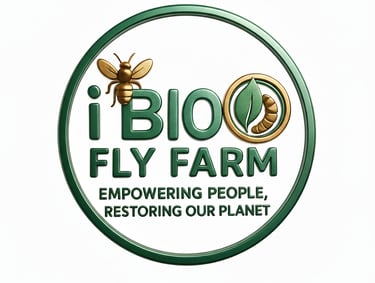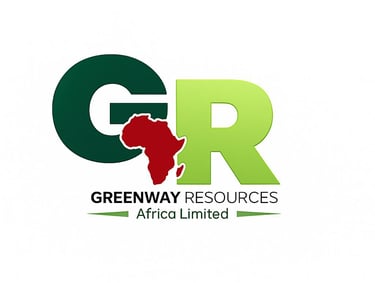impact
Explore our impactful restoration efforts.
Our why
Across Obuasi and nearby communities, land has been scarred by years of illegal mining. Families want safe soil, clean water, and honest work. DiDi Greens is a local NGO that helps people rebuild all three, starting from the ground up.
What we do
Restore land, one site at a time. We shape clean, raised berms, plant trees, mulch, and protect young seedlings through the dry season.
Grow food and incomes. We nurse and gift grafted avocado and other suitable species. They stabilise the soil, cool the ground, rebuild organic matter, and—over time—become a steady income stream for families.
Keep people safe. Because metals sit mostly in roots and skins, we pair good farming practices with annual third-party pulp tests before fruit goes to market.
Create fair work. Women and youth lead our nurseries, planting teams, maintenance, harvesting, and local sales. We pay fair stipends and provide basic tools and PPE.
Protect communities. We train local youth as community stewards. With smartphones, monthly data, and a small stipend, they can confidentially report illegal mining and help care for planted sites.
What the community gains
How it changes lives
For the land: Erosion slows, shade returns, and soils start holding water again.
For households: There’s paid work now—seedling care, planting, watering, pruning, harvesting—and a crop (like avocado) that can pay school fees and market bills later.
For communities: People have a simple way to report damage and a shared reason to protect regenerated sites.
How do we stay honest
We geo-tag plantings and keep simple mobile records.
We check tree survival at 3, 6, and 12 months and replant where needed.
We run independent fruit-pulp safety tests each year and pause sales if results fall short.
We hold community feedback meetings so neighbours can see progress and raise concerns.
We nurse and gift grafted avocado trees to our Greener Members, who plant them on clean, raised berms across Obuasi’s recovering landscapes. The trees act like living anchors—their roots stabilise the soil, their canopies cool the ground, and their leaves rebuild organic matter. Because metals remain mostly in the roots and skins, our annual pulp safety tests keep fruit safe for families and markets. Over time, each tree becomes a steady income source, creating fair work for women and youth in nurseries, harvesting, and sales—while turning once-scarred land into healthy, food-producing farms
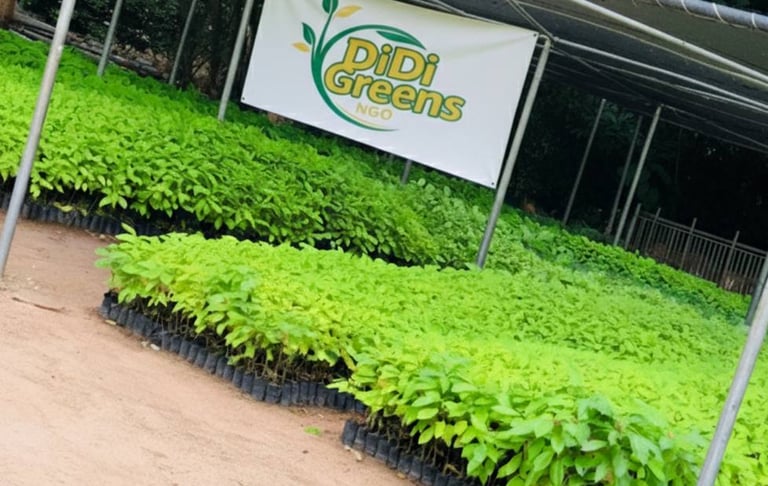

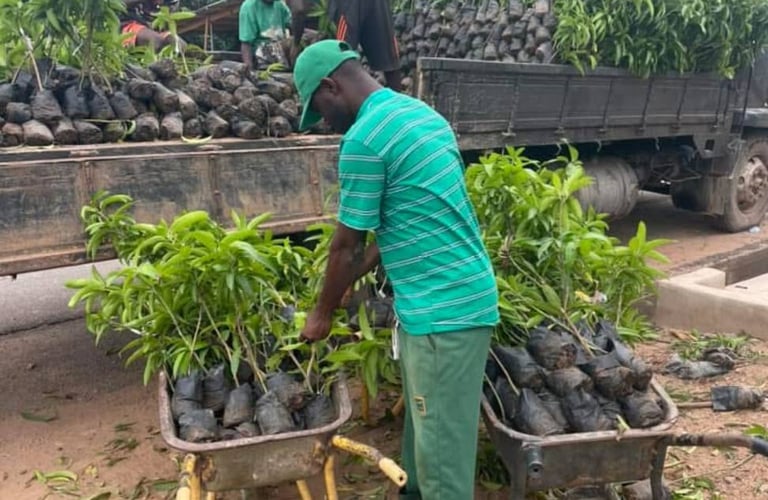

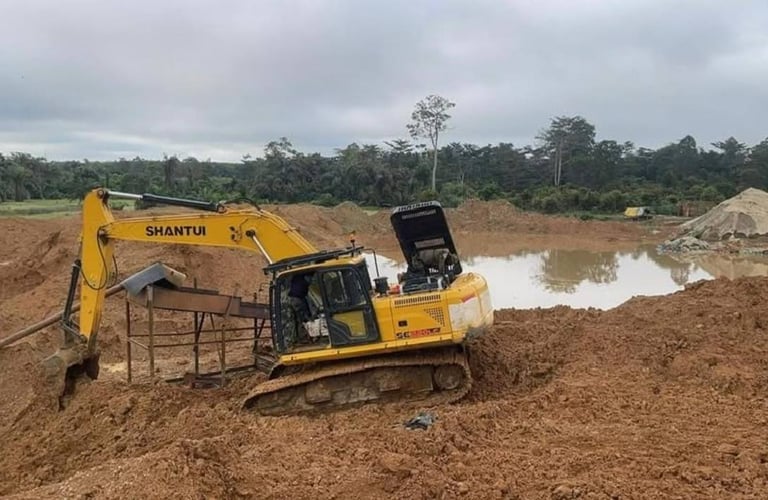

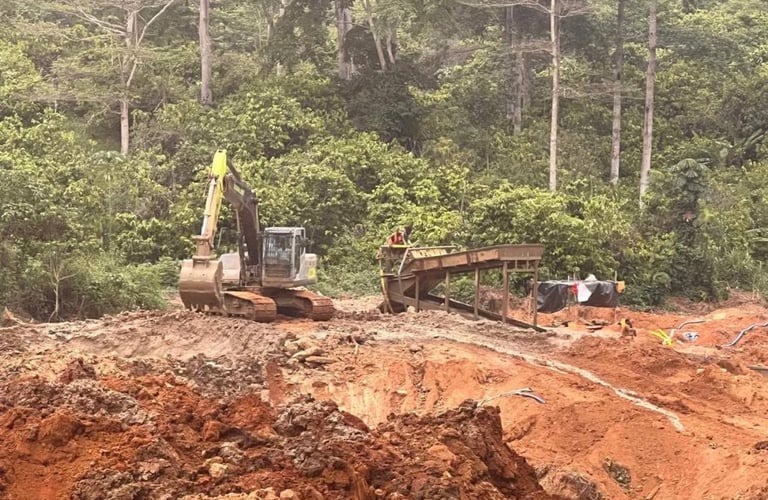

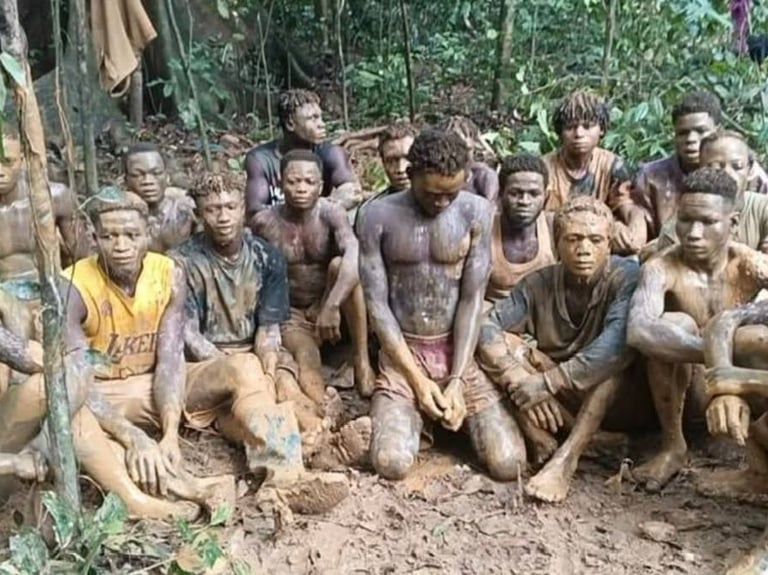

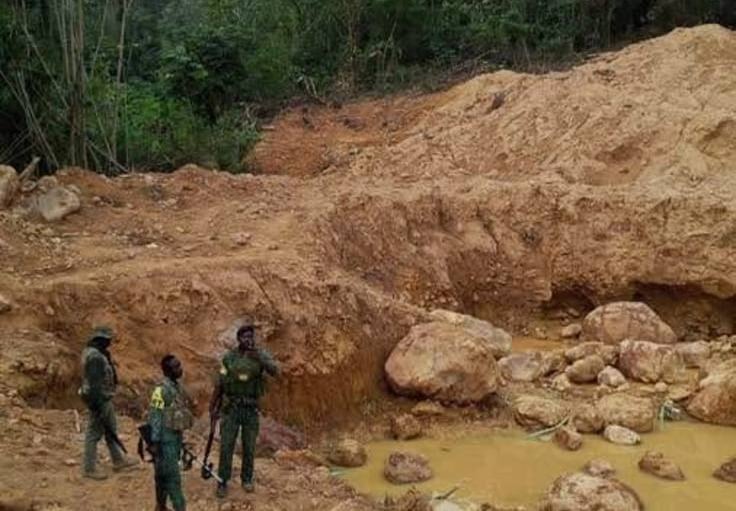

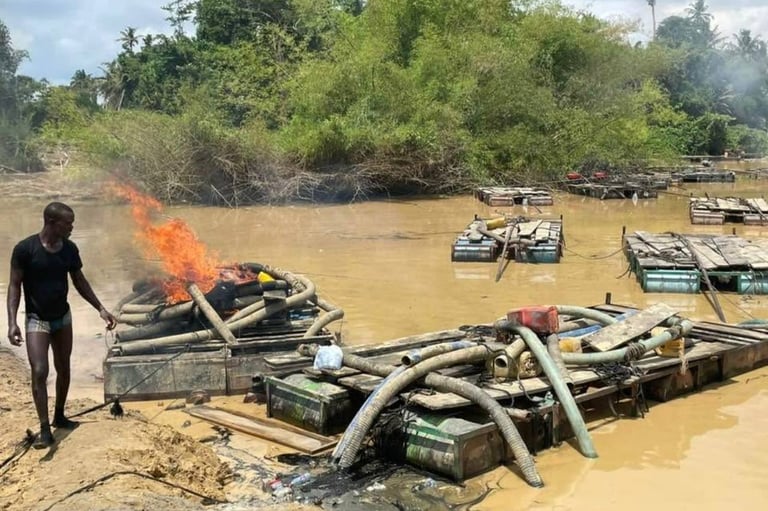

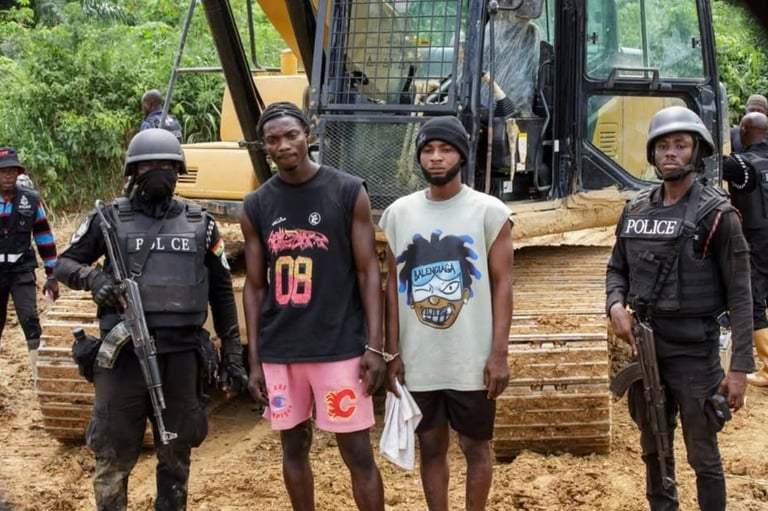

DiDi Green trained and equipped local youth as community monitors, providing them with smartphones, as well as monthly data and call credit, to confidentially report illegal mining in their areas. These youth receive a monthly stipend and continue restoring degraded sites, planting trees, maintaining nurseries, and helping to rejuvenate the land
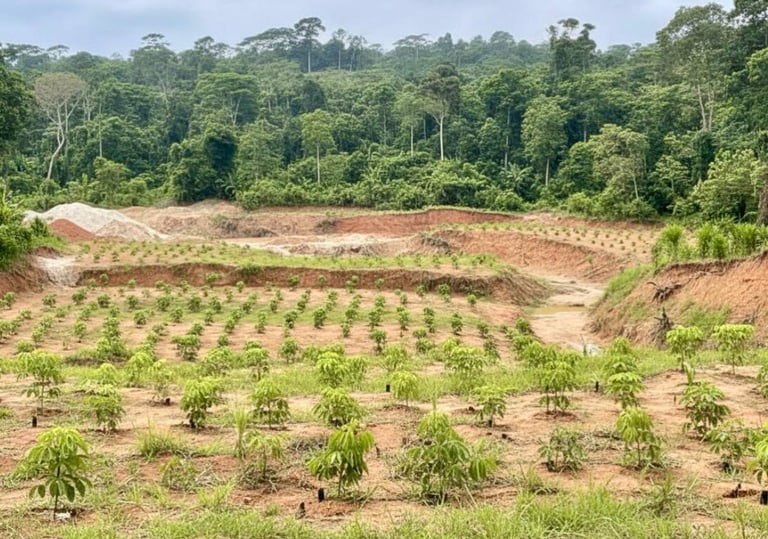

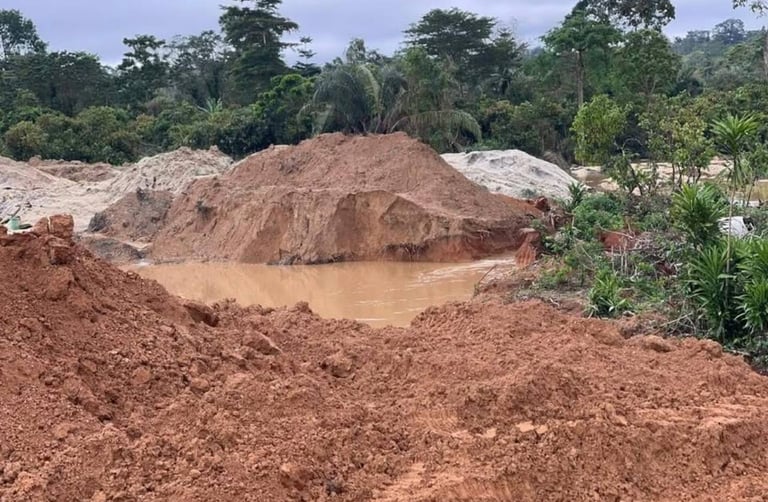

DiDi Greens leased excavators to plough and level degraded sites. Our sponsor, iBIO Fly Farm, supplied BSF frass fertilizer, which we incorporated into the soil before planting. We then established native trees to accelerate soil recovery and landscape restoration.
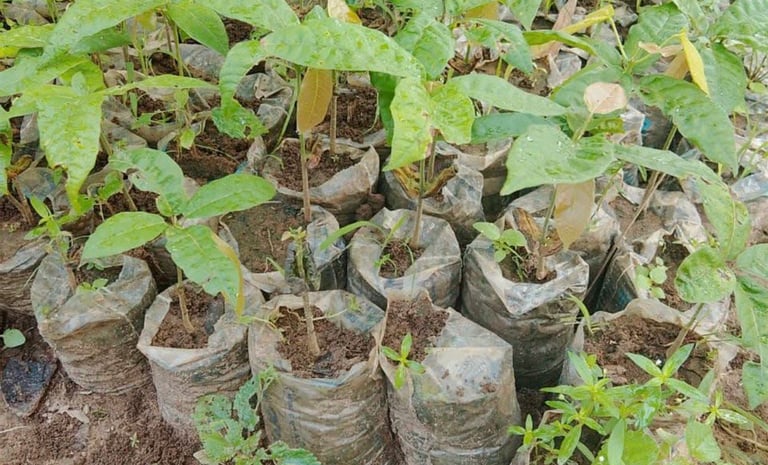

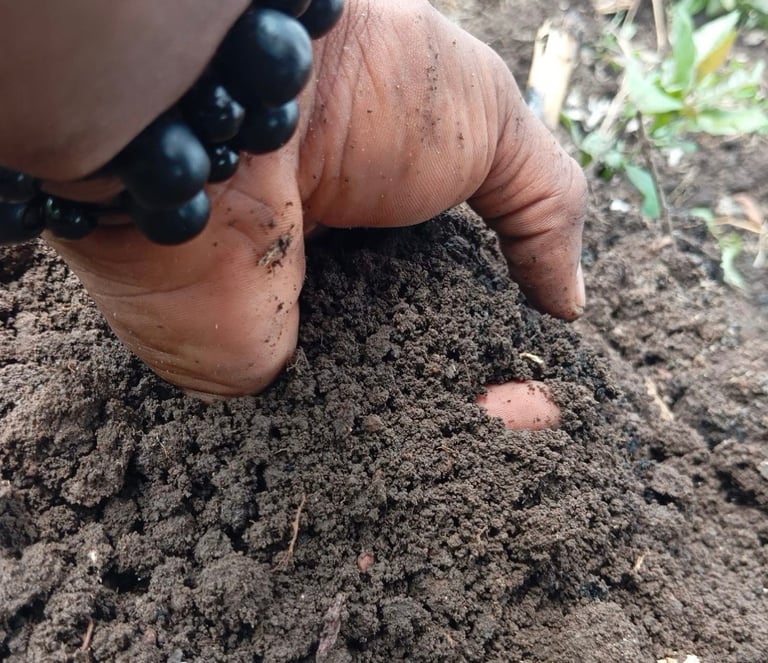

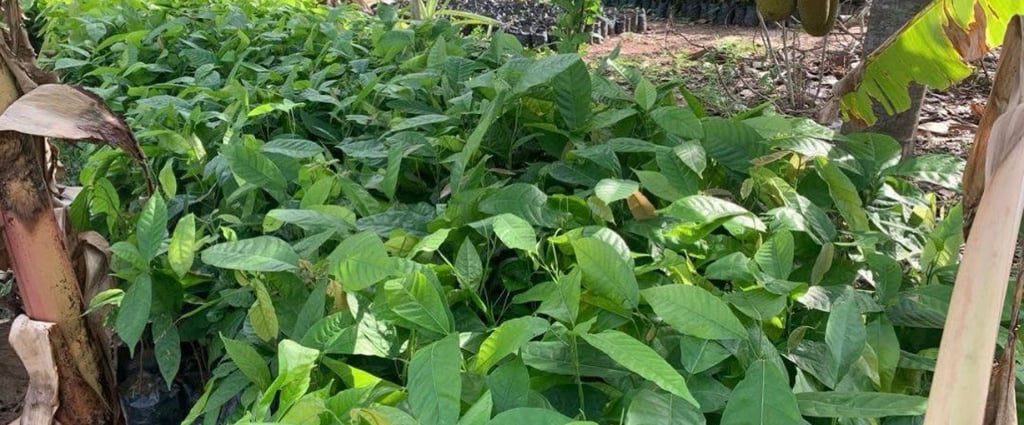

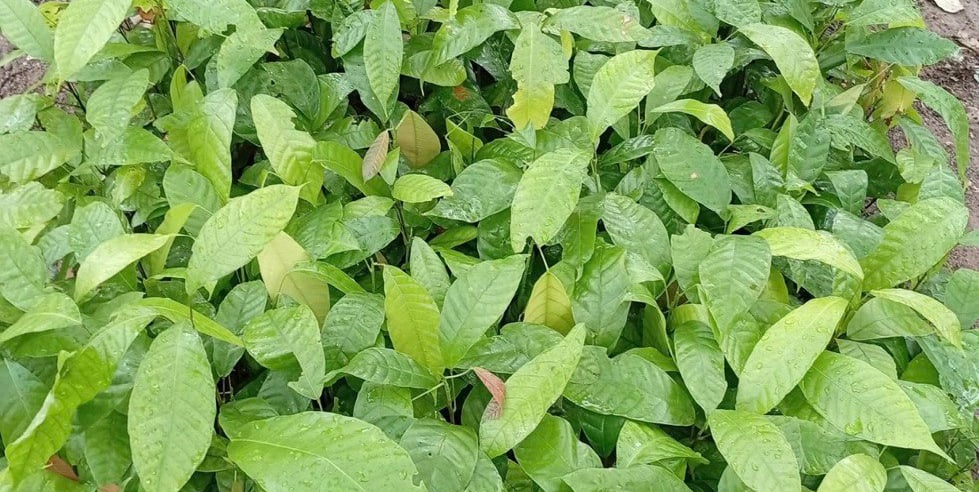

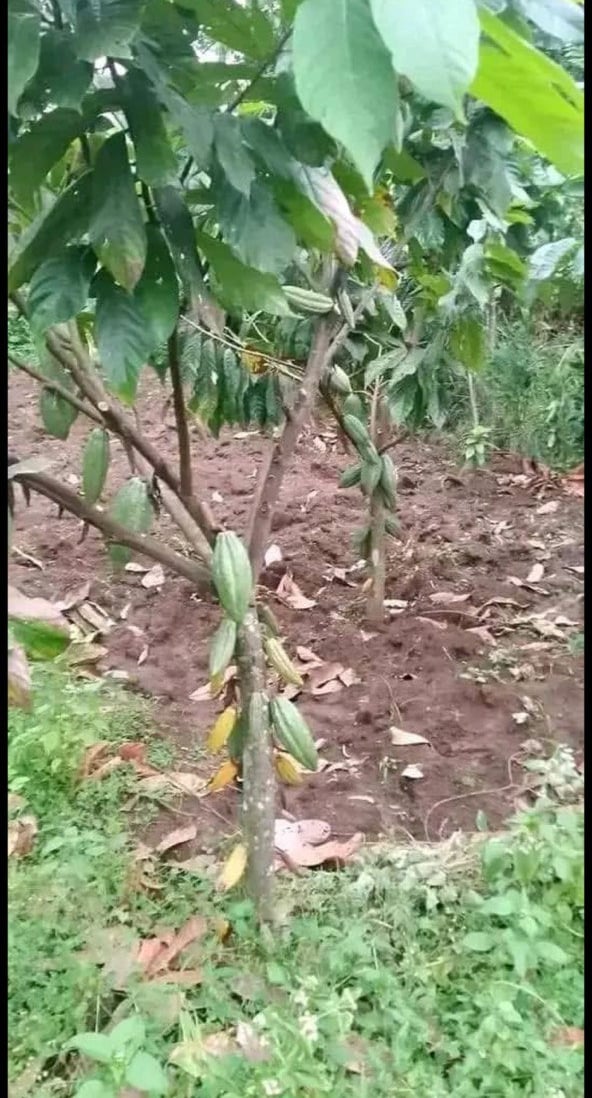

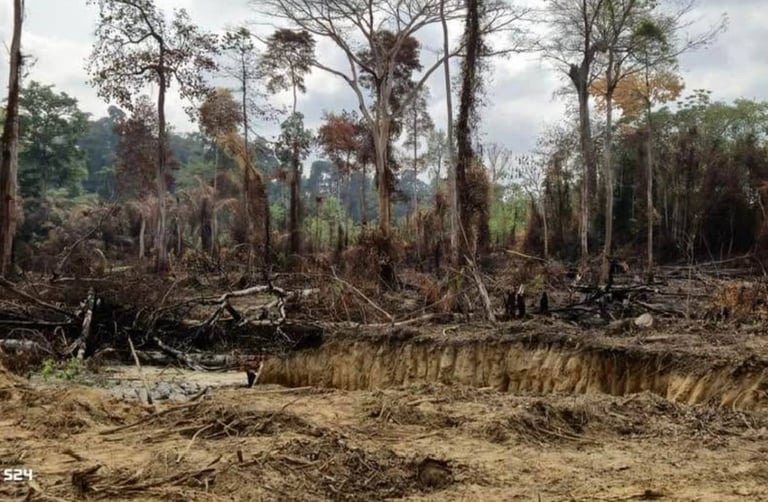

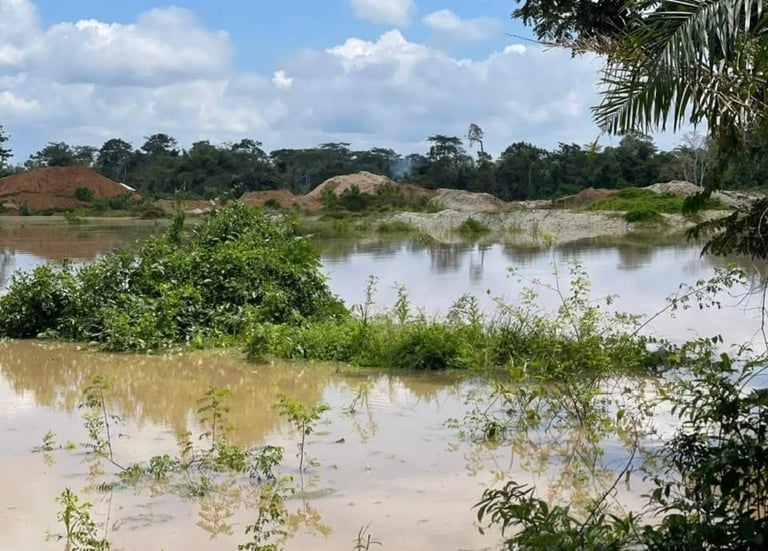

DiDi Greens turns local organic waste into soil life using Black Soldier Fly (BSF) bioconversion. Farm residues and food scraps feed BSF larvae, which produce two outputs: protein for poultry and fish, and a fine, nutrient-rich frass. Applied on clean, raised berms and covered with mulch, the frass rebuilds soil structure, lifts organic matter, improves water retention, and re-introduces beneficial microbes so trees and intercrops establish and survive the dry season.
Women and youth run the chain end-to-end: collection, BSF unit operations, moisture/pH checks, frass bagging, field application, nursery work, and seedling care. These are paid roles with on-the-job training, PPE, and simple SOPs. As sites recover, new income opens up in grafting, pruning, harvesting, and local sales—keeping value in the community and reducing input costs for smallholders.
We keep it practical and verifiable. Teams log frass volumes and application rates, geo-tag trees, and check survival at 3, 6, and 12 months with replanting where needed. In areas with mining legacies, we pair berming and mulching with safe-handling guidance and periodic checks. Our near-term targets: ≥75% 12-month tree survival, 1–2 t/ha frass on pilot plots, and 60% of paid roles for women and 50% for youth. Step by step, BSF turns “waste” into living soil—and reliable local work.
BSF frass is being added to the soil by our train youth..
Cocoa farmers using DiDi Greens’ free Black Soldier Fly frass are seeing measurable gains. Between March–August 2025, 340 farmers across 11 communities applied 52 t (≈150 kg/farm) as nursery top-dress and light side-dress at first rains (1.5–2.0 t/ha on treated blocks). Field checks show soil moisture at 10 cm +12% vs. baseline, darker, more friable topsoil, sturdier rootballs, and 28% fewer seedling losses through the dry spell. Early canopy recovery is faster, leaves hold colour longer, and pod set is 15% more even on treated rows.
Costs are easing too. Farmers report –18% spend on chemical fertiliser by spacing purchases and reducing doses; women-led seedling blocks note 22% fewer replacements, freeing time for pruning and pod hygiene. All treated fruit routes through annual third-party pulp heavy-metal tests (lab: [your lab name]), and plots are monitored with geo-tagged photos at 3/6/12 months. In short: better soil function, stronger trees, steadier yields — and less pressure on cash at peak farm-expense periods.
Partners


